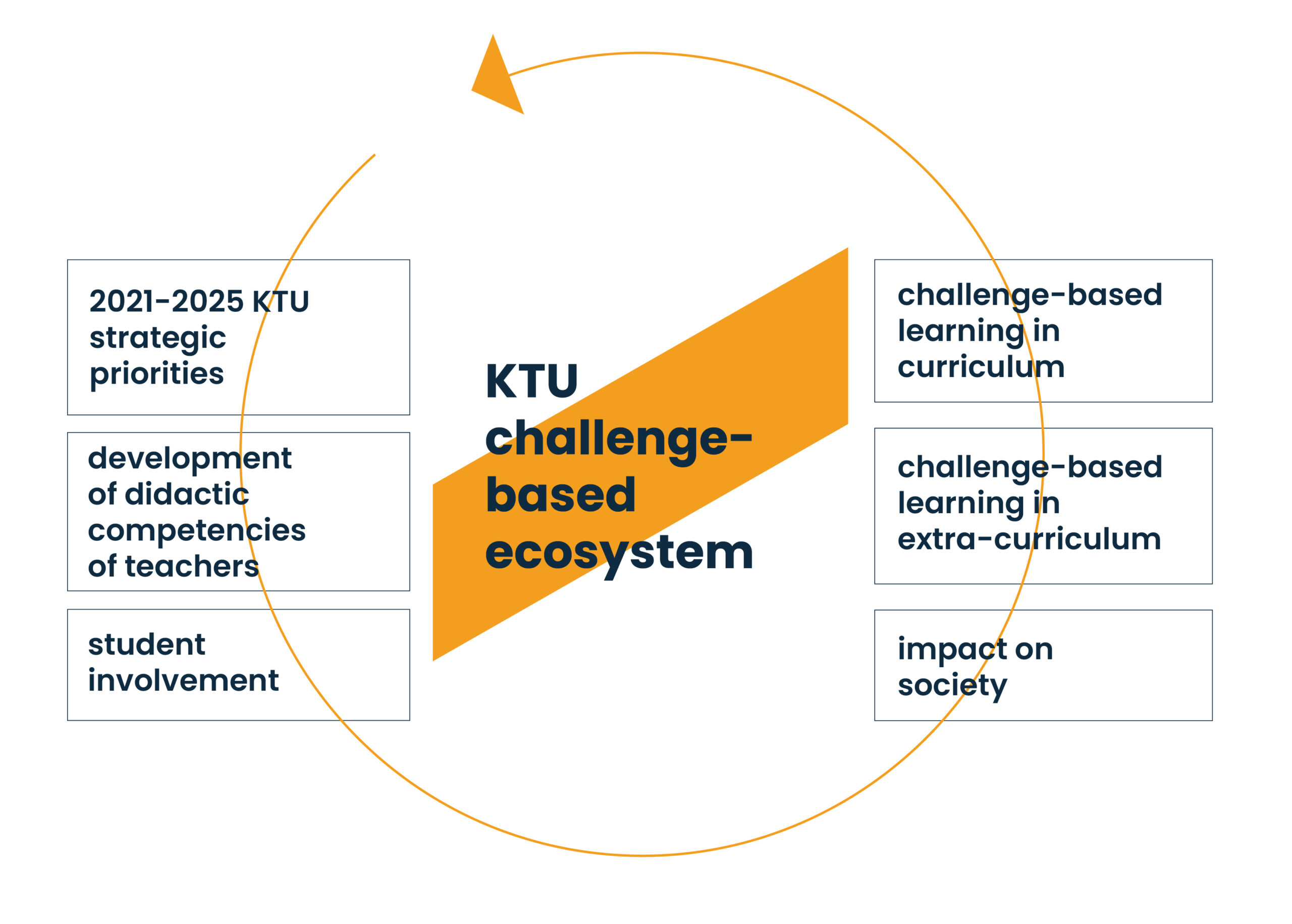
Challenge-based learning (CBL) is a teaching/learning method where students and teachers work together to solve real-world problems or challenges. Challenges can be provided by businesses, public or non-governmental organisations. This innovative learning method develops professional as well as soft competencies, such as creative thinking, collaboration, work ethics, presentation of results, networking, time management, etc.
Challenge -based learning changes the role of students in learning process, as students become the owners of the challenge and are responsible for how they learn and the results they achieve. Students are encouraged to be responsible learners who design their own learning pathways. Another distinctive feature of the CBL approach is that learners clarify the specific challenge they will tackle from a given big idea or a given general problem.
To ensure a high quality of learning and for the outcome of the challenge to be linked to the study module, students continuously work with moderators, known as teamchers at ECIU University. They ensure that students work using a challenge-based learning approach, pass all the stages of the learning and achieve the learning outcomes of the study programme.
More information on challenges is available here.
The Challenge-based Learning (CBL) method includes three phases with different objectives and tasks.
The first is the engagement phase. The main objective of this phase is to understand the essence and relevance of the big idea. In the first phase, students ask key questions, analyse the meaning of the idea and possible directions of action, and formulate a specific challenge that the team will address, the solutions of which will benefit the organisation and society.
After the first phase, the students move on to the research part, where they analyse the challenge in detail, identify gaps in their knowledge, and based on that, may select micro-modules and acquire the lacking competencies. They gather the missing information to better understand the challenge and formulate the concept of an initial solution.
In the final phase, the action phase, students develop reasonable solutions and implement them in an authentic environment, they experiment, receive feedback, learn and present their solution to the challenge provider and experts.
The CBL ecosystem at KTU is being developed at various levels: from inclusion in the University’s strategy and priority areas of activities to the development of didactic competencies of teachers, the involvement of students in the application of the CBL within and outside the framework of the curriculum, to societal impact assessment.
